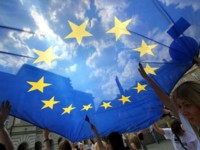Airlines and the European Trading System
 The European Union is expected to release a complete list of airlines that will be required to participate in the European cap and trade system later this month, but a preliminary list includes over 700 airlines registered in the U.S. including Delta, United and American Airlines.
The European Union is expected to release a complete list of airlines that will be required to participate in the European cap and trade system later this month, but a preliminary list includes over 700 airlines registered in the U.S. including Delta, United and American Airlines. Many governments, airlines, and industry groups see the move as a violation of national sovereignty and a bad move for business, imposing additional cost burdens at a time when airlines are facing difficult economic conditions.
However, a report released recently by the German Marshall Fund - Climate Policy and Industrial Competitiveness - reveals that Europe’s cap and trade has Emissions trading does not inevitably impose net costs on industry. Indeed, notes the report, despite initially opposing the EU ETS, all participating industrial sectors in Europe have in aggregate profited from its operation to date-perhaps excessively.
While the airline industry has been left out of many national carbon reduction goals in the past (as a direct result of the industry’s omission from the Kyoto protocol) many regions are now looking to the sector for carbon reduction savings.
One major fear for U.S. carriers is that a regional approach will result in double carbon taxation, as the current climate bill that passed in the House already includes taxation on jet fuel. The EU has vowed to honor other regional pacts and to eliminate double taxation in a timely manner.
Unlike Utilities, who can invest in renewable energies and technologies to immediately offset their carbon liability, airlines face fewer options. The most feasible are to improve fuel efficiency or purchase additional carbon permits from the E.U. The European model does not have a hard cap, meaning that airlines can purchase as many permits as they like, if they can afford it.
The report - Climate Policy and Industrial Competitiveness is available for download.
For More Information: Sustainable Life MediaYou can return to the main Market News page, or press the Back button on your browser.

